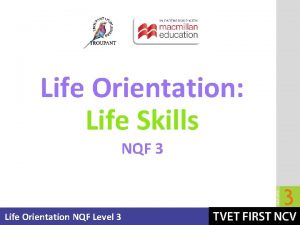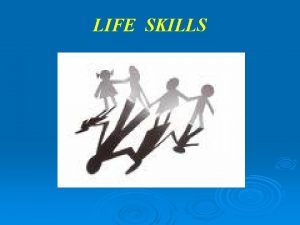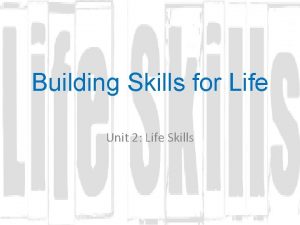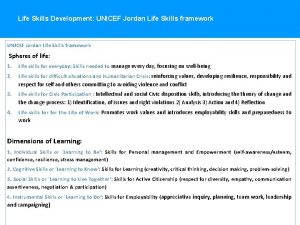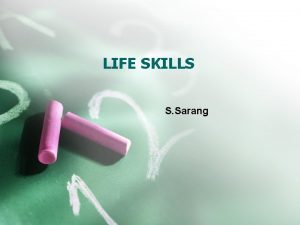LIFE SKILLS An Overview of the Life Skills






- Slides: 6

LIFE SKILLS An Overview of the Life Skills Program and Discussion for National Roll Out Presented by Fiona Corbin, Program Advisor, CIC, Tara Blanchard, E. D. Moose Jaw Multicultural Council Fariborz Birjandian, E. D. Calgary Catholic Immigration Society Morteza Jafarpour, E. D. Settlement Integration Services Organization National RAP Conference – Vancouver - February 2007

A Discussion of Life Skills Ø History and Ontario Region Pilot Ø Moose Jaw – Formalizing Life Skills into the delivery of the RAP Program Ø Calgary – An Analysis of Life Skills from the perspective of long term provision of the service Ø Life Skills and the Hamilton model

Some History Ø IRPA - Changes in selection of GARS Ø Service Providers and Local CIC staff identifying client needs and gaps in service Ø National RAP Review Ø CCR Ø National RAP Working Group

The Ontario Pilot for Life Skills Ø Started in October 2004 using ISAP funding Ø Delivered in six communities in Ontario: Toronto, Hamilton, London, Kitchener, Ottawa and Windsor Ø Goal was to help GARs adapt to life in their new community by providing short term and intensive life skill support in the area of basic skills of daily living in the client’s own language shortly after their arrival. Ø Evaluation completed in May, 2005 Ø Life Skills as part of RAP funding April, 2006

The Evaluation Ø What was working? Ø What was not working ? Ø Was the Project making a difference? Ø Were the six projects operating effectively? Ø Challenges Ø Recommendations and Conditions for Success

Conditions for Success Ø A short, intense intervention with sufficient time an timeframe allocated for learning of skills Ø Sessions tailored to the individual needs of families and not “laid on” curriculum Ø Hands-on demonstrations in the home and community followed by real life practice Ø Language match for service delivery Ø Regular follow-up and re-assessment of GARs need for life skills Ø Life skill delivery model is aligned with RAP Ø Training based on adult learning principles Ø Effective coordination of all key programs whether ISAP, HOST, RAP, LINC, etc. Ø Ongoing support and training for Life Skills staff
